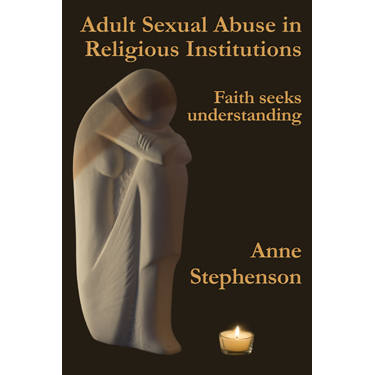Adult Sexual Abuse in Religious Institutions: Faith Seeks Understanding
— August 29, 2016
for Tui Motu Interislands
“This book is written in response to a deficit within religious institutions where processes to address sexual abuse by pastoral leaders are being inadequately addressed. Based in Christian tradition and drawing on personal experience, Stephenson reveals often hidden dynamics involving sexual abuse by pastoral leaders. She reflects on the current situation, provides information about the psychology of offenders and the effects of abuse on the victim. She gives instructions for Church leaders and community workers on how to support victims while taking responsibility for the criminal acts of offenders. There is practical advice and a structure about how to proceed with complaints.
I like Stephenson’s courage and her resolve to put responsibility for addressing sexual abuse by clergy, firmly into the hands of those in power. She outlines what is needed and how it should be done. Church leaders are challenged to be alert and not allow offenders to keep offending. The offender “cannot be healed with grace, forgiveness, reconciliation”, but must engage with the Criminal Justice system. She is a strong advocate for victims and states how important it is that we get it right for all concerned.
As well as noticing some editing issues I found myself looking for references to other current writers on sexual abuse and trauma, perhaps from a secular perspective. I think this may give more credibility to her general assertions that this is the way it is.
While some victims may view this as a useful text that validates their experience, I think others may find the prescriptive nature of the writing – the do’s and don’ts – difficult to relate to. I think it is important also to acknowledge that the person’s process itself leads the way. Even though there are certain themes that can be recognised, each person’s response to trauma is different.
Stephenson’s instructions to pastoral workers are clear. However I wanted to hear more about some of the complexities of disclosure within community settings. Instructions such as: “Do not pay attention to what erupts”, needed more explanation.
I agree with the author that this book would be most useful for Church leaders, those in positions of power, clergy and pastoral workers. It may also benefit counsellors who are working with victims of sexual abuse as it gives insight into Christian communities and what they may be struggling with.”
Kay Ryan is a psychotherapist in Auckland.
This review is online at: https://hail.to/tui-motu-interislands-magazine/publication/KrJM98L/article/FaqM3YN

